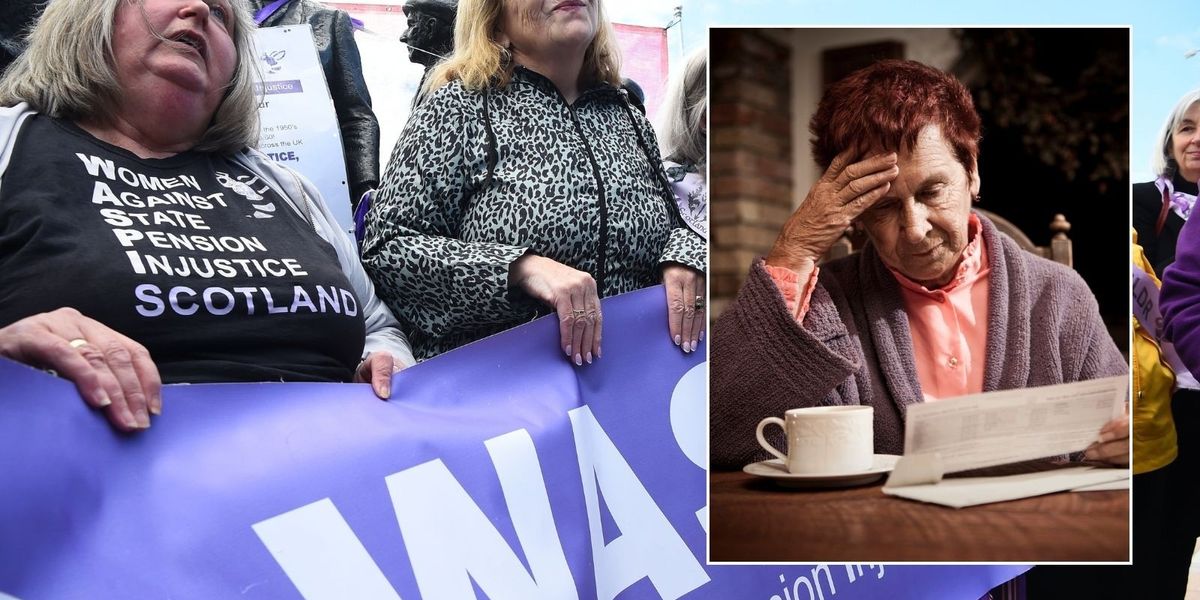Pensioners Rally Against Means-Testing of Winter Fuel Payment: A Call for Justice
In a significant turn of events, pensioners across the UK are voicing their discontent with the Labour Government’s recent decision to means-test the Winter Fuel Payment. This change, spearheaded by Chancellor Rachel Reeves, has been met with fierce criticism from various groups, particularly the Women Against State Pension Inequality (Waspi) campaign, which has long fought for justice for women born in the 1950s adversely affected by changes to the state pension age.
The Impact of Means-Testing
The Winter Fuel Payment, which previously allowed all older households to claim up to £300 in energy bill support, is now restricted to pensioners on means-tested benefits, such as Pension Credit. This decision has raised alarms among campaigners and affected individuals alike, who argue that it disproportionately impacts those already struggling to make ends meet.
Liz*, a 68-year-old Waspi woman, shared her frustration with GB News, highlighting the unfairness of the new policy. "It’s not only me, but anybody on the new state pension," she lamented. "To be on Pension Credit, you have to be on what they call ‘low income,’ and they make it up to be £218 a week. If you’re on Pension Credit, you get all other things that go with it, like the cost of living payments. As a new state pension person, we get no extras whatsoever, and now they’re going to take this away."
A History of Injustice
The Waspi campaign has been vocal about the injustices faced by women born in the 1950s, many of whom were not adequately informed about the changes to their state pension age. The Department for Work and Pensions (DWP) has been found guilty of "maladministration" in its handling of this issue, with an estimated 3.8 million women left in the dark about the changes that would significantly impact their retirement plans.
Liz’s story is emblematic of the struggles faced by many in this demographic. "I started work two days after my 15th birthday and was told you work 40 years, then you’ve got your pension. To this day, I’ve never had a letter to say that my pension wasn’t going to be paid to me at 60. I’ve still not," she explained, expressing her anxiety about the future.
The Cost of Living Crisis
The current cost of living crisis has only exacerbated the situation for Waspi women and pensioners in general. Recent reports indicate that 33% of Waspi women struggled to pay their bills last winter, with 25% unable to afford food. The decision to means-test the Winter Fuel Payment is seen as another blow to the most vulnerable in society, particularly as winter approaches.
Angela Madden, chair of the Waspi campaign, emphasized the urgent need for compensation for the hardships endured by these women. "Tens of thousands of women had their retirement plans thrown into chaos after the Government failed to properly communicate increases to their State Pension age," she stated. "Waspi women urgently need to see compensation delivered for the hardship they have endured, while all pensioners deserve the right to live their later years in comfort."
A Call to Action
The outcry from pensioners and campaigners has prompted calls for the Labour Government to reconsider its stance on the Winter Fuel Payment and to take meaningful action to address the grievances of Waspi women. Liz’s plea for the government to "get on and do it" resonates with many who feel that their voices have been ignored for far too long.
As the winter months approach, the stakes are high for millions of pensioners who rely on the Winter Fuel Payment to help manage their energy bills. The decision to means-test this vital support has left many feeling disenfranchised and anxious about their financial futures.
Conclusion
The ongoing struggle for justice faced by Waspi women and pensioners highlights the broader issues of communication and support within the UK’s pension system. As campaigners continue to advocate for change, it is crucial for policymakers to listen and respond to the needs of those they serve. The fight for fair treatment and adequate support for all pensioners is far from over, and the voices of those affected must be heard.
*Name has been changed to ensure anonymity.
